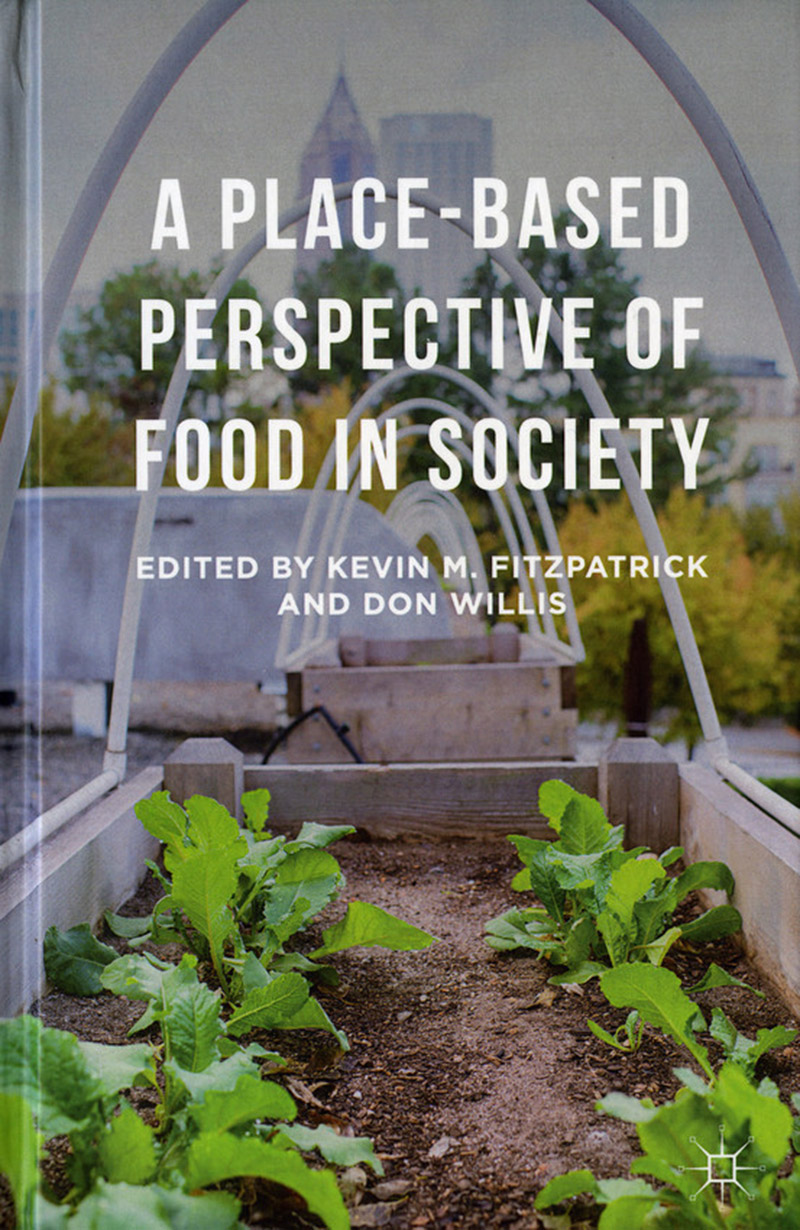
FAYETTEVILLE, Ark. – What food you have to eat, and how much, depends mostly on your zip code, country and continent. That’s the conclusion of a recent book edited by University of Arkansas sociology professor Kevin Fitzpatrick and U of A graduate Don Willis.
A Place-Based Perspective of Food in Society, published in 2015 by Palgrave Macmillan, is a collection of essays dealing with the sweeping topic of food production and food security, from the origins of modern agriculture and diet to the future of sustainable economies built around access to nutritious food. For Fitzpatrick, the book is a return to his longstanding work examining the role of place as a factor in quality-of-life indicators such as health care, economic inequality, childhood obesity and others.
“Resources are structurally distributed across social landscapes,” the editors wrote in the book’s introduction. “It is not by accident that low-income racial minorities living in urban areas suffer high rates of obesity, malnutrition, heart disease, and food insecurity.”
The book contains 12 essays divided into four categories: historical contexts, social and cultural contexts, the context of power and inequality, and the future of food. Contributors include sociologists, a medical anthropologist, an economist, an agriculture development expert, and history and political science experts.
Fitzpatrick previously edited the two-volume book Poverty and Health: A Crisis Among America’s Most Vulnerable; and coauthored the books Unhealthy Cities: Poverty, Race and Place in America; and Unhealthy Places: The Ecology of Risk in the Urban Landscape. He is the director of U of A’s Community and Family Institute, housed in the Department of Sociology and Criminal Justice at the J. William Fulbright College of Arts & Science, and holds the Bernice Jones Endowed Chair for Community.
Willis received his MA in sociology from the U of A and is now a doctoral student and Huggins Fellow at the University of Missouri’s Department of Sociology. His work focuses on the health outcomes related to food insecurity.
About the Community and Family Institute: The Community and Family Institute in the Fulbright College of Arts and Science was created in 1997 to facilitate research on community and family issues/problems. With a specific focus on but not limited to Northwest Arkansas, the Community and Family Institute also engages in research relevant to all of Arkansas, national, and global issues.
About the University of Arkansas: The University of Arkansas provides an internationally competitive education for undergraduate and graduate students in more than 200 academic programs. The university contributes new knowledge, economic development, basic and applied research, and creative activity while also providing service to academic and professional disciplines. The Carnegie Foundation classifies the University of Arkansas among only 2 percent of universities in America that have the highest level of research activity. U.S. News & World Report ranks the University of Arkansas among its top American public research universities. Founded in 1871, the University of Arkansas comprises 10 colleges and schools and maintains a low student-to-faculty ratio that promotes personal attention and close mentoring.
Topics
Contacts
Kevin Fitzpatrick, university professor
Department of Sociology and Criminal Justice
479-575-3777, kfitzpa@uark.edu
Bob Whitby, feature writer
University Relations
479-575-5709, whitby@uark.edu